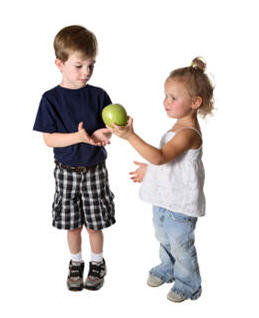There is so much advice offered to parents. How does your book differ from other parenting books?
KB I have tried to write a book that is different in several ways. First, I present a balanced approach to the problems of raising children. Extreme parenting methods may get the most attention, but most parents struggle to find a balance—between empathy and firmness; between challenging kids to work harder and letting them be kids; between insisting on rules and limits and (sometimes) giving in. Second, my recommendations are based, whenever possible, on scientific research. I have tried to present to parents the best of recent advances in clinical, developmental, and neuroscience research. Finally, most parenting advice continues to focus less on understanding our children’s emotions and more on how to manage a child’s difficult behavior. In these programs, parents are taught more effective parenting “skills” and “techniques.” Although this advice is undoubtedly helpful to many families, these methods have limitations.
Understanding and responding to our children’s emotions, creating more moments of encouragement and joy, are more important to being a parent—and to our children’s emotional health—than counting to three when they don’t listen or learning the right words to use when stating a command. Even in the best advice offered, I often find something missing, something that goes to the heart of being a parent. We do not stop often enough, I believe, to consider how our children look up to us and how we remain, throughout their lives, sources of affirmation and emotional support. This is so important—and so easy to lose sight of, especially when kids are acting badly.
Many parent advisors believe that we have become too permissive, that we are too ready to be our children’s friend rather than an authority. Do you agree? Do you see this problem in your work with families?
KB In my experience, more often than we are too permissive or indulgent (which, of course, we sometimes are) parents are too stressed—more burdened and more alone. Young parents now have less support available to them than my parents did when I was growing up. So often, families are stuck—children have become stubborn and defensive, and so have we. Criticism and punishment lead to anger and defiance, and then to more punishment and more defiance. These vicious cycles of conflict and argument undermine children’s initiative and confidence as well as their sense of responsibility. In the book, I offer parents a way out. I offer advice on how to repair family relationships, and replace frequent criticism with encouragement and problem solving.
Can you explain why is it so important for parents to understand and value their child’s emotions?
KB Among child psychologists, a consensus has emerged. A child’s increasing ability to “regulate” her emotions—to control and channel her expression of emotions, to express her feelings in constructive rather than hurtful ways—is now recognized as a critical factor in children’s psychological health. Improved emotion regulation leads to benefits in all areas of a child’s life – increased attention to tasks, less disruptive behavior, better ability to resolve conflicts with peers, and lower levels of psychological and physical stress. Children who are able to regulate their emotions will also behave well (most of the time). They will more easily make and keep friends, and they will work harder and achieve more in school.
How can we teach our children to be caring and empathic towards others, as you say in the book, to nurture a desire for giving, not just getting?
KB Several decades of child development research have taught us that children learn caring behavior in a parent-child relationship of shared positive feelings; when they observe admired adults who act with nurturance and compassion; and when they are given responsibilities within their family. We need to teach our children that their feelings are important, but so are the needs and feelings of others. We should also make doing for others a more regular part of our family lives. Children learn important lessons from helping others—they learn how good it feels, to themselves and to others, to do good work.
What is your opinion of Tiger parenting, described in Amy Chua’s Battle Hymn of the Tiger Mother?
KB My advice to “Tiger parents” is this: There is a better way. Discussions of Amy Chua’s book often overlook one of its central lessons—her approach was not working. Although one of Amy’s daughters was doing well, her younger daughter had become angry, sullen, irritable, and withdrawn. We need to understand and respect our children’s individual temperaments.As often as Tiger parenting may encourage exceptional achievement, it may also lead to discouragement and alienation, as it did in Ms. Chua’s own family.


